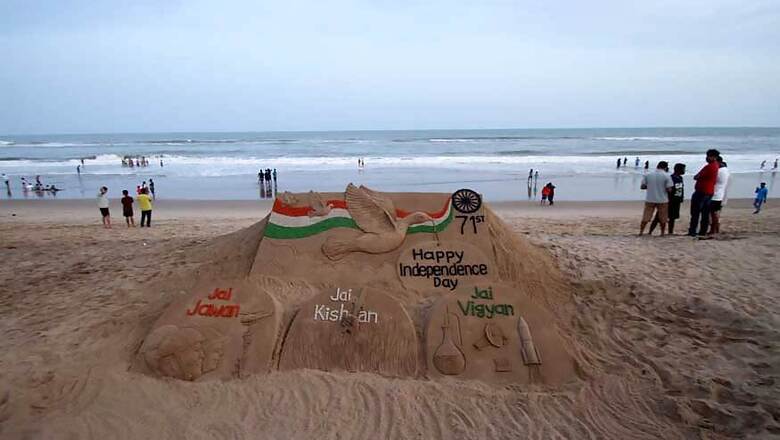
views
New Delhi: As the nation celebrates the 70th year of India’s Independence, two Independence Day celebrations were restrained by the police stating that it could create a law and order problem.
The first one was the event slated to be organized at Dargah Shah E Mardan on the eve of Independence Day. The event was to mark India’s Independence with a series of patriotic mushairas which would also have patriotic nazms (songs) and which was to be followed by a round of fireworks.
However, on August 10, Delhi police visited the compound and told them that the event could not be held due to “heavy law and order arrangements on the eve of Independence day.”
The police added that they feared “anti-social elements may also join” and disrupt the programme. The Dargah authorities were directed to follow the order or else face legal action.
Bahadur Abbas Naqvi, the general secretary of Anjuman-e-Haideri, the body that manages the shrine, told News18 that such an order violated their basic right to celebrate the country’s freedom and such a directive only reeked of a ‘communal bias.’
“Why are they stopping us? We had informed the PM also about the event. A lot of people from Delhi were supposed to attend it. This order to prevent us from celebrating this day of joy shows how much are we kept away,” added Naqvi.
However, the accusation of communal bias may fall flat when one looks at another incident of not allowing Independence Day celebrations.
The other event involved RSS chief Mohan Bhagwat. Bhagwat sparked a controversy in Kerala by hoisting the national flag during Independence Day celebrations at a government-aided school, defying a restraining order by the district collector.
Bhagwat raised the tricolour at the Karnaki Amman School in Palakkad district despite orders from the collector that only elected representatives or functionaries of the school are allowed to do so in aided schools.
So can an Independence Day event be cancelled by the police citing law and order issues?
Legal experts suggest that there are no explicit provisions to prevent organisers from holding such events and police “often rely on Section 144 of the Indian Penal Code which prevents unlawful assembly, but even for that moving the court is extremely important,” and that such directives are often based “on the intimidating power of the police.”
“The fact that police declines permission on the basis of fear that antisocial elements may create disturbance does not hold any water as it is extremely vague. Such a thing can also happen when the prime minister is addressing a gathering. So such directives can only find legal sanction under the IPC, but that too has to be read in a very restrictive manner and does not have a wide ambit. These orders often work on the basis of the intimidating power of the police and this need to change with police reforms,” said Flavia Agnes, a Supreme Court lawyer and the director of Majlis Legal Centre.




















Comments
0 comment